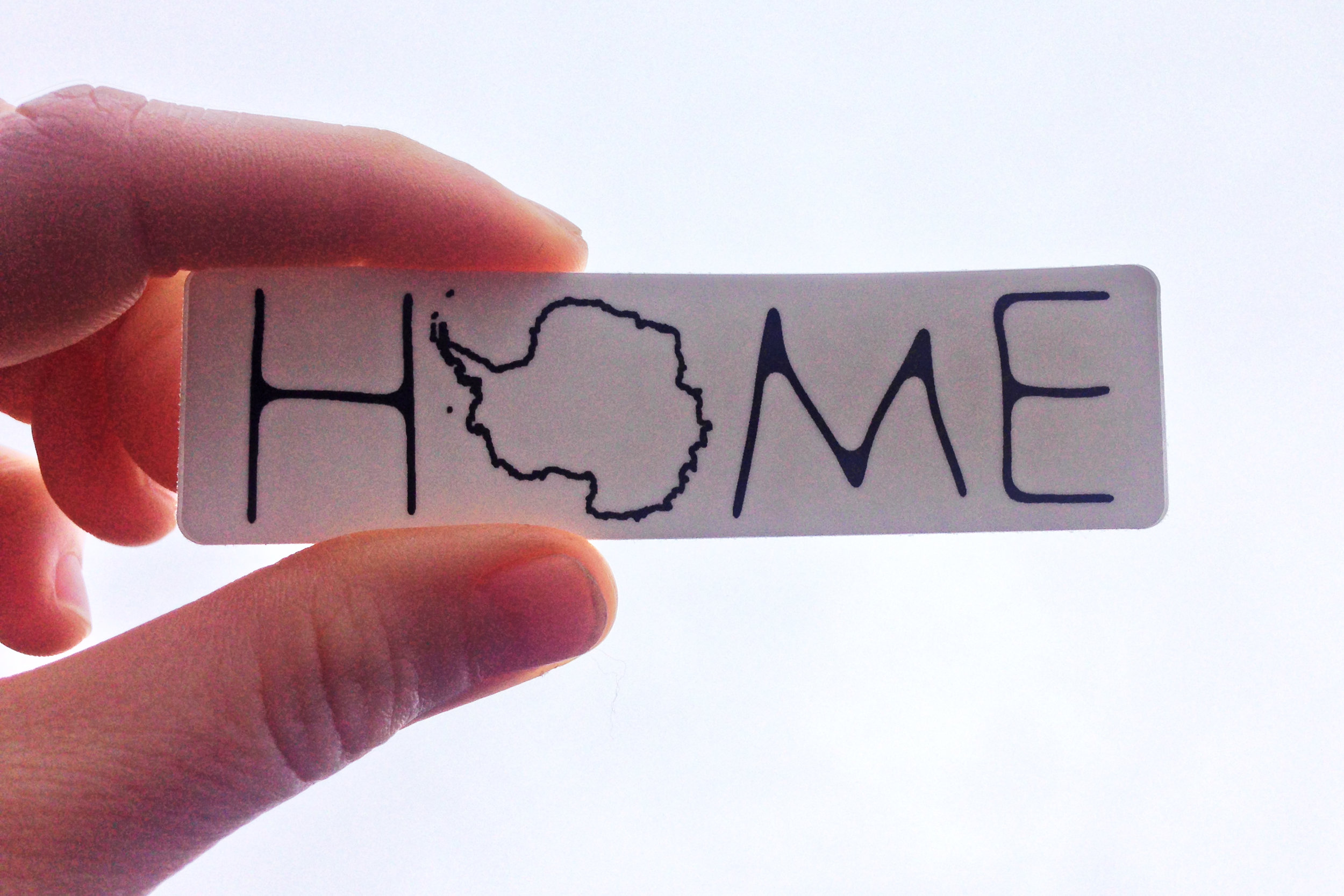Location: Punta Arenas, Chile | - 53.1638° S, 70.9171° W | Temperature: 46°F/ 8°C
"So there it is. You go to the end of the earth and you find... a mirror, a truism, something you should have known all along; or perhaps you did know it intellectually.
But now, after Antarctica, it's in your gut." - Gabrielle Walker, Antarctica
When I walk into the lab, KC is leaning over the counter, grinding coffee beans. He looks up and, in his characteristic cheery demeanor, says "Good morning! How did you sleep?"
"Good," I say. "I've actually slept a lot better than I thought I would down here."
"Yeah? Do you usually have issues sleeping?"
"No, not usually. But I wasn't sleeping well before this trip. I'm not an anxious person, but — "
"But you were about to quit your job and start a new business and travel to the bottom of the world." He grins and hands me a freshly pressed coffee.
I smile at him and sip the precious liquid. This Patagonia blend is some of the best stuff we have to drink on the ship and I feel full of gratitude every time KC shares a cup with me.
It's the little things.
I sit down at my laptop and immediately turn to look out our porthole window. Jagged ice bergs float by. In that moment, my mind is occupied by just three thoughts—appreciating the kindness of a person I see every day, savoring a few sips of really good coffee, and taking nothing for granted.
Another morning in Antarctica. Another moment that tugs at my heart and mind, whispering this place is really special.
Just about everyone who experiences Antarctica the way I have in the past six weeks is a scientist. KC, for example, will come back half a dozen times over the next year to collect data for his PhD work.
As a self-employed science writer and photographer, my future is much less defined. But after dozens of conversations with our marine technicians and the exceedingly kind folks at Palmer Station, I know one thing for sure—I want to spend more time here.
During one of our long afternoons on the zodiac, I ask TR about the backgrounds and work experiences of marine technicians.
He tells me about the wide variety of experiences and skills sets, then asks, "are you thinking about applying?"
"Maybe. I'm not sure I want to be on a ship the whole time though. I think I'd like to spend time on land down here. Somewhere I can hike and climb."
He tells me about the application process, the contracts, and the time commitments. "You'd probably have to do four to six months," he says. "Doesn't that go against your absolute freedom thing and being your own boss?"
Looking at the massive ice bergs and mountains surrounding us, I smile and say, "no, definitely not."
One of my favorite mountains in Andvord Bay.
Over the past six weeks, I've spent a great deal of time thinking about how I forge connections to places. The words of Shreve Stockton continue to resonate:
"I fall in love with places the way I fall in love with men. Actually, that's not the precise truth. I fall deeper, more ardently in love with places than I have with any man, and will give myself over to a place in a way I have never given myself to a person."
A tiny township in the shadow of the Black Mountains. An unapologetically loud and proud city in California. In the past three years, I have fallen in love with both—but unlike people, places do not demand exclusive fidelity. I have space in my heart for a new love.
Like a small research base on the Antarctic Peninsula.
During our final stop at Palmer, I spend time talking to KC Loosemore (the other KC). He tells me about writing for The Antarctic Sun, and doesn't hesitate to give me the contact info for some folks there.
I stop by Zee's office, give her a huge hug, and tell her I'm working on some plans. I don't know exactly how or when, but I know— in my mind, in my heart, in my gut — I'm coming back here.
"Marley, it's been such a pleasure meeting you," Zee says warmly. "You know what you have to do now, right?"
She looks at me intently, taking in my boundless energy and eagerness.
"Keep it alive," she says. "I know you'll be back down here. Just keep it alive."
Read the rest of The Pago Files
To learn more about our work in Antarctica, check out In Search of Minkes and follow #insearchofminkes on social media. To see more photos, head over to Instagram and Twitter.
Curious about the blog title? A pagophile is any living organism that thrives in ice. Pago is a word of Greek origin, meaning cold, frost, freezing; fixed or hardened.




